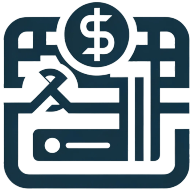6 Payroll Compliance Tips for Remote Or Mobile Employees
Navigating the complexities of payroll compliance for remote and mobile employees can be daunting. With the right strategies and tools, businesses can ensure accuracy and avoid costly legal pitfalls. This article provides actionable tips for optimizing payroll processes, enhancing security, and staying abreast of the latest regulations.
- Create Tailored Payroll Strategies
- Invest in Robust Cybersecurity Measures
- Adopt Advanced Payroll Software
- Implement Clear Payroll Policies
- Explore Outsourcing for Payroll Expertise
- Stay Updated on Regulatory Changes
Create Tailored Payroll Strategies
Handling payroll compliance for remote or mobile employees requires a deep understanding of multijurisdictional laws and meticulous systems to ensure accuracy. A unique challenge is navigating the varying tax laws, labor regulations, and reporting requirements across different states or countries. For example, I once worked with a technology company that expanded its workforce across three continents. They were struggling with payroll compliance due to differences in tax withholding rules, employment classifications, and reporting deadlines. This complexity left them at risk of fines and legal disputes. My years of experience in finance and international business allowed me to create a tailored payroll strategy, integrating advanced payroll software with local tax law expertise for each location.
We implemented centralized tracking systems that ensured accurate reporting and introduced training sessions for HR to keep them updated on compliance requirements. One major hurdle was managing compliance for contractors in the UAE, where labor laws significantly differ. My approach involved establishing clear contracts and collaborating with a local legal expert to confirm alignment with regional standards. Within three months, the company went from multiple compliance risks to a fully streamlined, compliant system. This not only saved them from potential penalties but also boosted employee satisfaction by ensuring error-free and timely payments. My ability to combine strategic foresight with hands-on execution has consistently led to outcomes like these.
Invest in Robust Cybersecurity Measures
Ensuring the security and privacy of data is paramount for payroll compliance. Remote and mobile employees often access sensitive information from various locations, which can increase the risk of data breaches. Employers must invest in robust cybersecurity measures to protect this information.
This includes the use of secure networks, encryption, and regular security training for employees. By safeguarding data, businesses can avoid costly legal issues and maintain trust with their workforce. Act now to strengthen your data security protocols.
Adopt Advanced Payroll Software
Technology can significantly streamline payroll processes for remote and mobile employees. Automation tools can handle tasks like tax calculations, timesheet processing, and direct deposits with greater accuracy and efficiency. These tools can also reduce human error and save valuable time for payroll administrators.
Cloud-based payroll software allows employees to access their information from anywhere, ensuring they are always informed. By adopting these technologies, companies can make their payroll systems more efficient and reliable. Consider implementing advanced payroll software to enhance your operations.
Implement Clear Payroll Policies
Clear policies are essential for managing payroll compliance with remote and mobile employees. Employees need to understand the expectations and procedures related to payroll, including timely submissions and adherence to tax laws. A well-documented policy can serve as a reference point and reduce misunderstandings and errors.
Providing regular updates and training on these policies ensures that everyone stays informed and compliant. Clear communication helps prevent non-compliance and fosters a culture of accountability. Review and update your payroll policies to ensure clarity and compliance.
Explore Outsourcing for Payroll Expertise
Outsourcing payroll functions can be a smart move when specialized expertise is required. Payroll compliance involves understanding complex tax laws and regulations, which can vary by location. Hiring experts ensures all aspects of payroll are handled accurately and in accordance with the law.
This can be particularly beneficial for businesses with employees in multiple jurisdictions. Outsourcing allows companies to focus on their core operations while trusting specialists to manage payroll. Explore outsourcing options to leverage specialized payroll expertise.
Stay Updated on Regulatory Changes
Staying updated on evolving regulations is crucial for payroll compliance in a remote or mobile workforce. Employment laws and tax regulations change frequently and can differ by state or country. Keeping track of these changes is essential to avoid legal issues and penalties.
Regularly reviewing updates from government websites and industry newsletters can help stay informed. Companies should also consider consulting legal experts to navigate complex regulatory environments. Stay proactive and informed about regulatory changes to ensure ongoing compliance.


